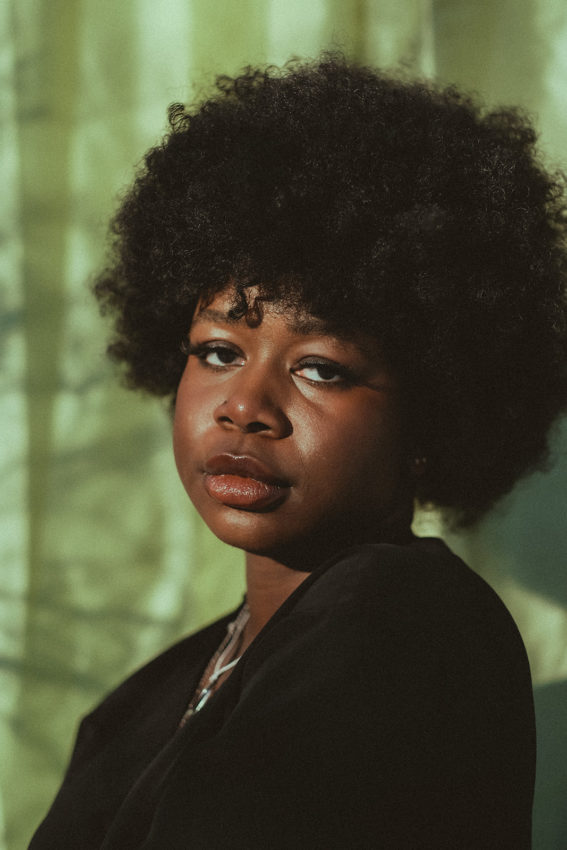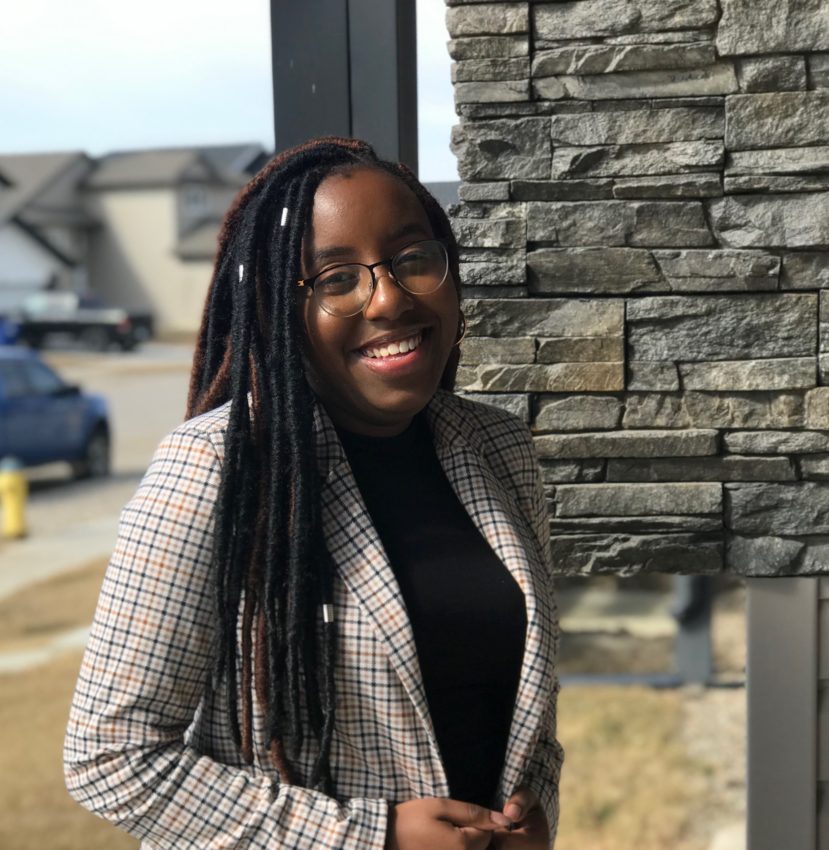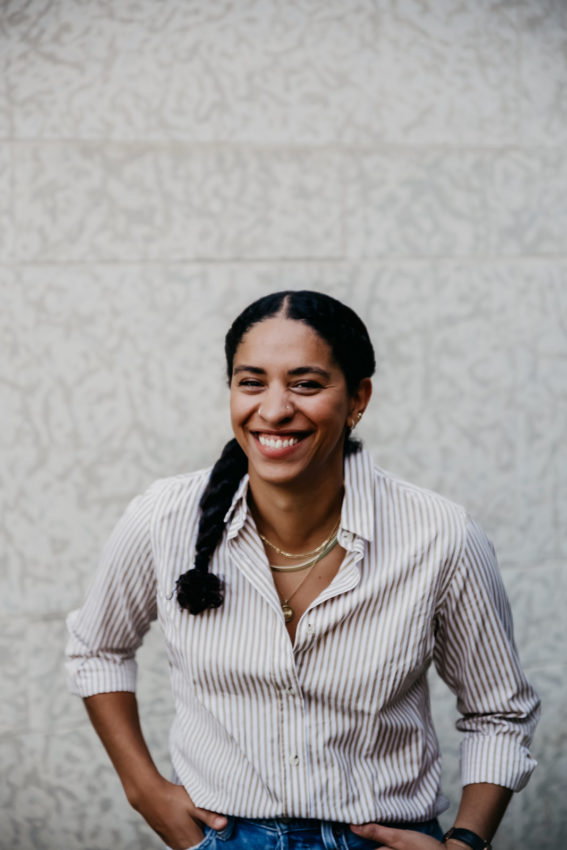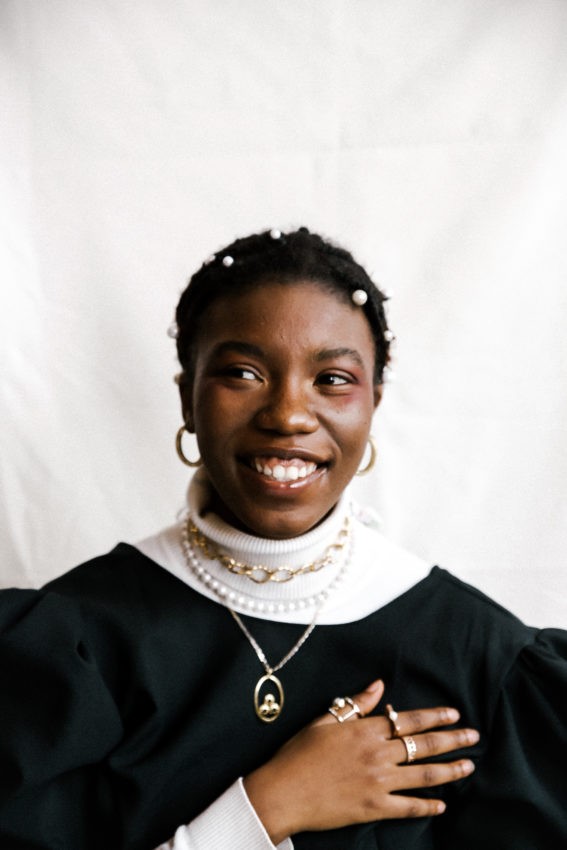
At the onset of February, Black History Month in Canada, four Black activists who found themselves in the midst of the Black Lives Matter movement last summer now speak of their experiences, racism in Saskatoon and what change still needs to happen.
In May of 2020, after the death of George Floyd in the United States, communities around the world were shocked and horrified by the mistreatment of Black people at the hands of the police and the state. Activists from all over the world gathered and fought against racial injustice, with multiple rallies held in Saskatoon to honour Floyd’s death and fight for Black lives.
The momentum of the Black Lives Matter movement after Floyd’s death sparked conversations about race in workplaces, on social media and in various organizations across the world. Places devastated by their own political climate, like Palestine and Syria, even rose up in support of Black Lives Matter.
In Saskatoon, it was the creation of blacklivesmatteryxe, an organization that aims to raise awareness on race issues in the city, that kept the conversation moving forward.
The creation of blacklivesmatteryxe

Ugandan-American Delilah Kamuhanda is the sexual health coordinator at Saskatoon Sexual Health and OUT Saskatoon. She says that she has always wanted to create a space for Black people in the city. However, this was not what prompted her to start blacklivesmatteryxe.
“I had been attacked by someone when I was walking home from my last day of work, before closing down because of COVID,” Kamuhanda said. “I was literally too afraid to leave my home because of racist people attacking me when I was walking home. And it really scarred me.”
The first George Floyd rally in Saskatoon, where over 200 protesters marched through the downtown streets, was also the first time she left her house since the incident. She says that the “need to be part of something that says, ‘This is a problem here,’” gave her the strength to leave her house.
“I [needed] to be … in a space of collective mourning because there was just a lot going on for me mentally and emotionally,” Kamuhanda said. “It was uplifting and empowering in so many ways, and I knew that I wanted spaces like that to continue past that singular event.”
Kamuhanda then started the blacklivesmatteryxe Instagram page with her cousin. She says it has led to great community-building across Canada with people working for the BLM movement. Kamuhanda says “95 per cent of the work is so uplifting and supportive,” but sometimes it “can be really devastating and emotional work,” too.
“The things that people share are so appalling and ridiculous, and the fact that they happen down the street or in this province or anywhere is ridiculous and dumbfounding and disgusting,” Kamuhanda said.
As someone who grew up in Maryland, United States, Kamuhanda says the biggest struggle that the BLM movement faces in Saskatoon, and Canada in general, is the ignorance of people in regards to race issues due to constant comparisons made to the U.S.
“We think that anti-blackness or anti-black racism is an American issue when in reality, Canada has its own history of anti-blackness, of enslavement of Black [and] Indigenous people, and of segregation,” Kamuhanda said.
Kamuhanda says that as a Black, queer woman, intersectionality is central to the work that she does.
“No one should be left behind in Black Lives Matter,” Kamuhanda said.
The impact of words
Tomilola Ojo is a third-year psychology student at the University of Saskatchewan. She is a Nigerian-Canadian activist and speaker, working for blacklivesmatteryxe. She helped Delilah set up and run the organization.
Ojo says that her involvement with BLM started when she was in highschool, when many other Black people were killed due to police brutality. Floyd’s death and the BLM movement rising has gotten her back in the limelight.
Ojo describes her journey in activism as standing up for what is right as a speaker and as a writer. She is passionate about anti-racism, queer rights and harm reduction.
“Anytime I get a platform I try to use that to talk about things I think are important,” Ojo said.
Much of Ojo’s activism revolves around language. She believes that words are the “lowest common denominator” when it comes to taking action, something that everyone can do.
As someone who grew up in Toronto, Ojo finds that the main issue with racism in Canada is casual racism that often gets overlooked, like slurs and people commenting on her hair.
“At first, it manifested in me as just anger, and I was just a very angry person for a long time,” Ojo said. “And I realized [that] my anger isn’t doing anything.”
She realized that she needed to take action.
“I’ve always loved writing,” Ojo said. “I’ve been writing since I came out of the womb — just talking about issues I thought were important, trying to get people to understand, see my perspective.”
“There are so many ways to exist in this world, and there is no way we can understand the way another person’s life is, because it’s just so different from us, if they don’t tell us,” she adds.
Having faced many racist remarks in the city, Ojo wants her activism and the BLM movement to create a better and safer space for Black youth, including her two younger brothers.
However, she believes that it is important for youths themselves to get involved with the movement and activism in general to take matters into their own hands.
“We are the ones who are going to live in the future that we’re fighting for. Our futures are on the line,” Ojo said. “I think it’s really important that we have a say in how it’s built, how it’s shaped, who is in charge and what kind of things are considered the norm.”
Ojo says she grew up facing microaggressions purely due to her race, so she understands how “Black children and Black youth have to grow up so fast.”
“There’s so much history and so much heritage to do with their existence as a Black person,” Ojo said.
“You can’t just exist and not know where you’re from; you can’t just exist in the world without any prior influences… You have to work twice as hard as everyone just to be considered equal.”
Where’s the change?

Natalya Mason is a sexual health educator and social worker at Saskatoon Sexual Health. She is the daughter of a settler and graduated from the U of S with a psychology degree and a minor in women’s and gender studies.
She was a speaker at the Floyd rally held by BLM yxe and has worked with Kamuhanda to offer an anti-racist sex education webinar.
Mason says her journey in activism began when she was at the U of S. She was mainly involved in issues around gender and feminism. More recently, she has been working as a diversity and inclusion facilitator.
As a sexual health educator, Mason believes that though issues like sexual violence and racism may not seem related, “people of color are often more impacted by issues like sexual violence or sexual harassment,” so to create positive change it is required to change all facets of violence and racism.
“Eventually it all comes down to the fact that we have systems that have been in place for a very long time; we have institutions that have been functioning in ways that oppressed people,” Mason said.
She says the change needed is one that “liberates everyone regardless of their race or their gender identity [or] their sexual orientation.”
Mason believes that Floyd’s death and the death of many other Black people have been catalysts for change, and that people are taking the small steps needed towards the right direction.
“I hesitate to say that there’s been progress yet because it’s only been a matter of months. The kind of change that we’re talking about is going to take a really long time,” Mason said. “But I think that people are starting to take personal responsibility for changing the communities that they live in.”
It doesn’t stop with Black rights. As a settler, Mason says it is critical to engage with Indigenous people while advocating for BLM.
“Working together with Indigenous organizers and activists is going to be extremely critical to the success of both causes,” Mason said. “I think that we need to recognize that our liberation is collectively tied together and that when we all work together, we’re able to have greater successes.”
Black joy and Black art

Peace Akintade is an African-Canadian poet, activist and first-year Arts and Science student at the University of Saskatchewan.
She has worked with Saskatoon Open Door Society as a public speaker to bring awareness and to advocate for the issues refugees and immigrants face in the city. She has spoken up as a public speaker and as a poet on various occasions about racism and Black Lives Matter. Akintade also works for the Office of the Treaty Commissioner as part of their youth speakers’ bureau.
Since the upsurge in the Black Lives Matter movement, Akintade has often been called on to speak publically about racism. She worries over being tokenized and has had to be selective over which spaces she chooses to speak at. However, she wants to be able to pave the path for other Black artists and take part in opportunities that will help her do so.
“We should hire the artists for diversity, of course, but also because we love the work and want to continue the work. That kind of conversation is what I really advocate for Black artists — that we are seen for our work rather [than] for our skin or for the diversity card,” Akintade said.
Along with tokenism, Akintade has found a social pressure of forced positivity placed on Black artists when doing their work as well as people dismissing their issues based on willful ignorance.
“Some people here in Saskatoon don’t want to be popped out of their bubble … and they see Black Lives Matter [as] being about talking about trauma, talking about troubles, talking about all the battles in life,” Akintade said.
“Other people are saying, here in Saskatoon, ‘that doesn’t really happen here, like I don’t see that it’s happening’.”
Akintade says that BLM in Saskatoon is all about the community.
“So many people that live here really want to see a change in the world,” Akintade said. “Saskatoon is good in that way that organizations and communities can come together because it’s so small, and it’s harder for people to be outright racist towards … the movement.”
In her advocacy for Black lives, Akintade says she hopes to emphasize Black joy due to the overpowering depiction of Black trauma and Black bodies in the media.
“I want to bring in the knowledge that Black people … feel happiness; they feel joy,” Akintade said. “We need to be able to take a breath collectively and not forget that we are worth more than what is going on right now.”
—
Wardah Anwar | News Editor
Photos: Supplied as credited
Leave a Reply